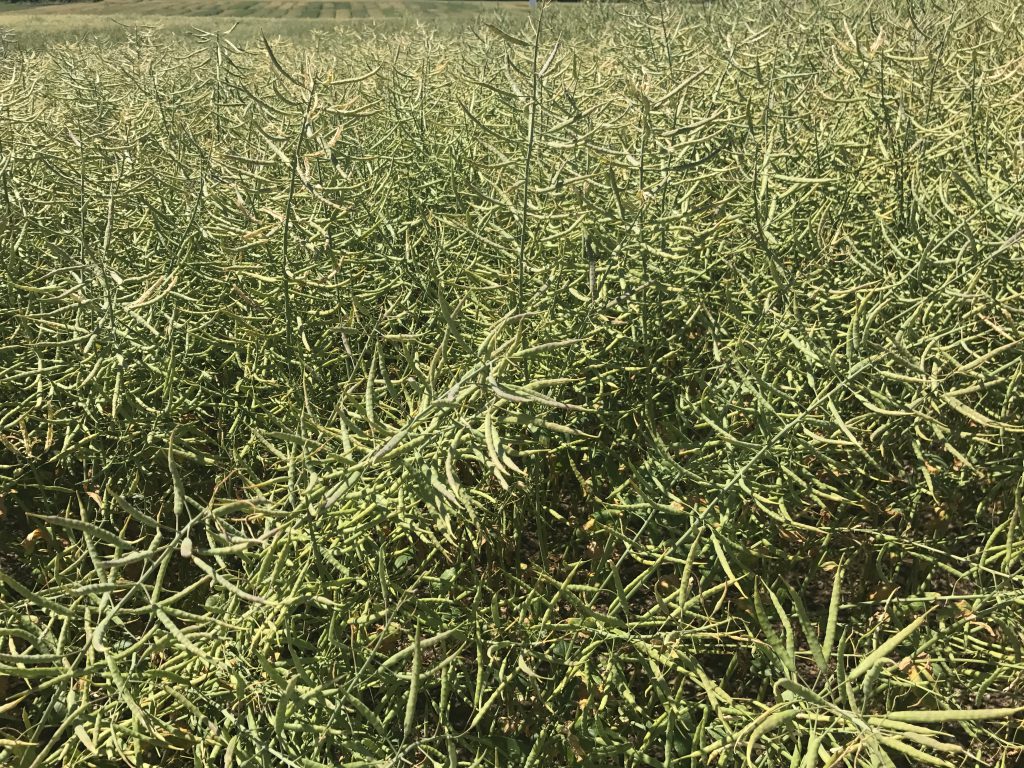Farmers with lying straw, who are under increasing pressure because of wet weather conditions, are seeking to “switch” fields under the Straw Incorporation Measure (SIM), Agriland has learned.
According to Teagasc, although winter barley harvest has now been completed, there is very little straw baled.
Michael Hennessy, head of Crops Knowledge Transfer Department at Teagasc, said farmers now find themselves in a predicament because of the weather and are looking for other options.
“Many growers want to know if they can now include winter barley straw within their commitment to the straw incorporation measure.
“The reality is that farmers have had no opportunity, whatsoever, to bale straw: They have been so focused on getting grain off the fields.
“We are looking into this matter at the moment,” he said.
The Straw Incorporation Measure is a payment for chopping straw and incorporating it into the soil.
According to Hennessy there is currently a wide range of winter barley yields, ranging from 3t to 4.5t/ac.
He added: “The average figure will probably come in at around 3.4-3.7t.
“Growers are also getting on with the winter oilseed rape now. This is an absolute priority. Yields here are in the range 1.2-2.0t/c, averaging 1.7t.
“The winter oat harvest is progressing reasonable well and there are some reports of the first winter barley crops having been harvested.”
Traditionally, August is the month when winter oilseed rape crops are planted out, but the current inclement weather conditions may delay some plans.
According to Michael Hennessy, growers will not be thinking about oilseed rape until the third week of this month.
He added: “By then ground conditions may well have improved.
“Yes, soils are very saturated at the present time. But a few good days at this time of the year would change this situation totally.”
This week the Department of Agriculture, Food and the Marine (DAFM) has published its recommended winter oilseed rape varieties for 2023 and there are three options which are all hybrids.

DK Expansion first came onto the recommended list with a provisional recommendation in 2021 and was upgraded to a fully recommended variety in 2022.
This is the highest-yielding variety on the recommended list. Early vigour is good. This is also the tallest variety on the list but has very good lodging resistance and good stem stiffness.
It is late to flower and has an early maturity rating. The variety has good light leaf spot and very high shedding resistance scores.
Ambassador (PR-1) first came onto the recommended list with a provisional recommendation in 2022.
This is a high-yielding variety. Early vigour is good. It has very good lodging resistance and good stem stiffness.
It is moderately early to flower and has an early maturity rating. The variety has good light leaf spot resistance.
Aurelia (PR-1) first came onto the recommended list with a provisional recommendation in 2022. This is a high-yielding variety, and early vigour is good.
It has very good lodging resistance and good stem stiffness. It is moderately early to flower and has an early maturity rating.
The variety also has excellent light leaf spot resistance.
